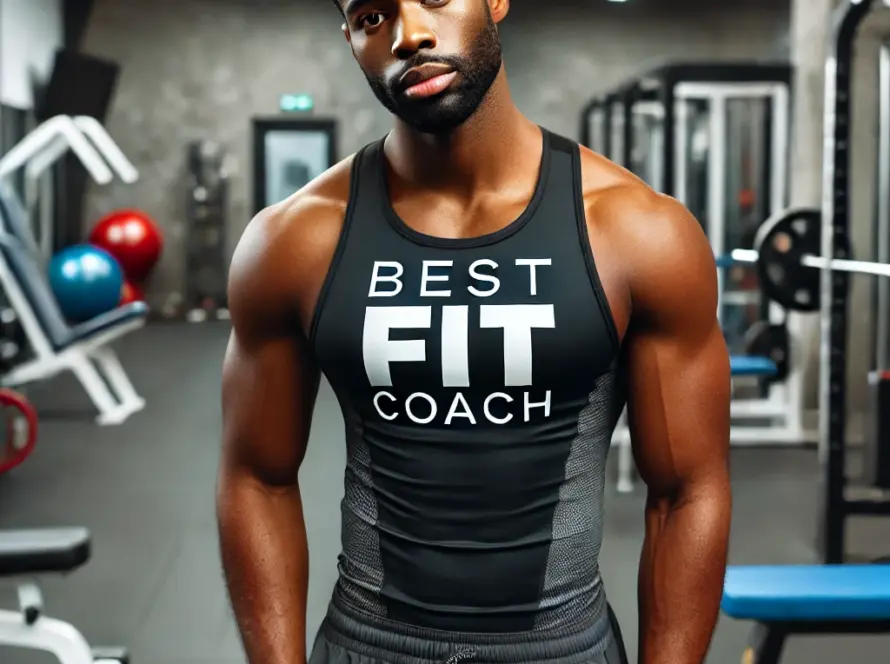How Fitness Can Help Introverts Find Their Soulmate: A Unique Path to Connection
Finding a soulmate can be challenging for anyone, but introverts often face unique obstacles in the dating world. Traditional dating settings—loud bars, social events, and fast-paced environments—can feel overwhelming for introverts, making it difficult to form meaningful connections. However, fitness provides a unique and effective avenue for introverts to meet like-minded individuals and potentially find their soulmate. With shared interests, natural interactions, and reduced social anxiety, fitness can be the perfect catalyst for love and connection for introverts.
1. Shared Interests Foster Connection
Why It Matters:
Shared interests are one of the strongest foundations for any relationship. When you meet someone through fitness, you already have a common passion—health and wellness—that can naturally spark conversations and create a meaningful bond. Research published in the Journal of Social and Personal Relationships emphasizes that couples who share common interests tend to experience more satisfaction and longevity in their relationships. For introverts, meeting someone in a fitness setting bypasses the need for small talk, allowing for deeper, more authentic conversations from the start.
Tips:
- Join Fitness Classes: Group fitness classes, such as yoga, Pilates, or spin, are great ways to meet people who share your commitment to a healthy lifestyle. These classes foster a sense of community, making it easier for introverts to strike up conversations.
- Attend Fitness Events: Fun runs, charity walks, and fitness expos are ideal environments to meet others with similar values and interests. These events allow for low-pressure interactions centered around a shared activity.
2. Fitness Reduces Social Anxiety
Why It Matters:
Exercise is widely known to reduce stress and anxiety, making social interactions less intimidating for introverts. Physical activity releases endorphins, which boost mood and confidence, leading to more relaxed and enjoyable social experiences. According to a study published in the Journal of Anxiety Disorders, regular exercise can decrease symptoms of social anxiety by improving emotional regulation and reducing tension. This is especially important for introverts, who may feel anxious in traditional dating settings.
Tips:
- Start Small: Begin with activities that have smaller group sizes or allow for personal space, such as hiking groups, running clubs, or fitness meetups. These settings provide a less overwhelming atmosphere for introverts to socialize.
- Practice Mindfulness: Incorporating mindfulness practices, such as yoga or meditation, into your fitness routine can help reduce anxiety and improve your ability to engage with others. Mindfulness exercises enhance focus and calm, making social interactions more manageable.
3. Fitness Environments Are Conducive to Natural Interaction
Why It Matters:
Fitness environments, such as gyms, outdoor parks, and fitness studios, offer a more relaxed and natural setting for social interaction than traditional dating venues. These environments allow introverts to engage with others organically, without the pressure of formal introductions or forced conversations. A study in the Journal of Health Communication found that fitness settings encourage casual, low-pressure interactions, which help introverts feel more at ease when meeting new people.
Tips:
- Be Open to Conversations: While working out, be open to casual conversations with others. A simple “hello” or compliment on someone’s workout gear can be a great icebreaker. Fitness environments make it easy to connect with others over shared routines and goals.
- Find a Workout Buddy: Joining a fitness class or group with a workout partner can make exercise more enjoyable and provide a natural way to build a deeper connection. Working out together fosters mutual encouragement and bonding.
4. Build Confidence Through Fitness Achievements
Why It Matters:
Confidence is attractive, and achieving fitness goals can significantly boost your self-esteem. Regular exercise not only improves physical health but also enhances mental well-being and self-perception. A study from the American Psychological Association confirms that individuals who engage in regular physical activity report higher levels of self-confidence and positive body image. For introverts, this newfound confidence can make social situations, including dating, feel less daunting.
Tips:
- Set Personal Goals: Whether it’s running a 5K, lifting a certain weight, or mastering a yoga pose, setting and achieving fitness goals enhances your confidence and self-worth. Each accomplishment reinforces the belief that you can succeed in other areas of life, including relationships.
- Celebrate Milestones: Acknowledge and celebrate your fitness achievements, no matter how small. Each milestone keeps your confidence high and motivates you to continue progressing—both in fitness and in your social interactions.
5. Join Fitness Communities
Why It Matters:
Being part of a fitness community provides a sense of belonging and increases the chances of meeting someone with similar values and interests. For introverts, who often prefer deeper connections over large social circles, fitness communities offer a comfortable space to build relationships. According to research published in the Journal of Sport & Exercise Psychology, individuals who participate in group fitness activities are more likely to form meaningful friendships and connections, which can evolve into romantic relationships over time.
Tips:
- Use Fitness Apps: Many fitness apps have social features that allow you to connect with other users, join challenges, and share your progress. Apps like Best Fit Coach AI offer personalized workout plans and connect you with a community of like-minded individuals, creating opportunities for organic interactions.
- Participate in Online Forums: Join online fitness communities and forums where you can share tips, seek advice, and connect with others. These digital spaces allow introverts to build relationships in a comfortable, low-pressure environment.
6. Embrace the Journey
Why It Matters:
Finding a soulmate isn’t just about reaching the destination—it’s about enjoying the journey along the way. Fitness is a lifelong pursuit that enriches your life in many ways, from physical health to emotional well-being. By focusing on your fitness journey, you open yourself up to personal growth, new experiences, and meaningful connections. Remember, the process of becoming your best self through fitness can attract the right person into your life.
Tips:
- Stay Positive: Maintain a positive attitude and enjoy the process of getting fit and meeting new people. Positivity is contagious, and your enthusiasm for fitness will naturally draw others to you.
- Be Patient: Building meaningful connections takes time. Focus on enjoying your fitness journey, and trust that the right person will come into your life when the time is right.
Final Thoughts
For introverts, meeting a soulmate may seem challenging, but incorporating fitness into your lifestyle opens up new avenues for connection. By joining fitness classes, reducing social anxiety through exercise, engaging in natural interactions, building confidence, and participating in fitness communities, introverts can create a supportive environment to find love.
For more personalized advice and support on integrating fitness into your lifestyle, turn to Best Fit Coach AI. Whether you need tailored workout plans, motivation tips, or guidance on your fitness journey, Best Fit Coach AI is here to help you achieve your goals—and maybe even find your soulmate along the way.
References
- Journal of Social and Personal Relationships. (2019). The Role of Shared Interests in Relationship Satisfaction.
- Journal of Anxiety Disorders. (2017). The Impact of Exercise on Social Anxiety Symptoms.
- Journal of Health Communication. (2018). Fitness Environments as Social Spaces: The Role of Casual Interactions.
- American Psychological Association. (2016). Physical Activity and Self-Confidence in Social Situations.
- Journal of Sport & Exercise Psychology. (2020). Group Fitness Participation and the Development of Social Connections.



